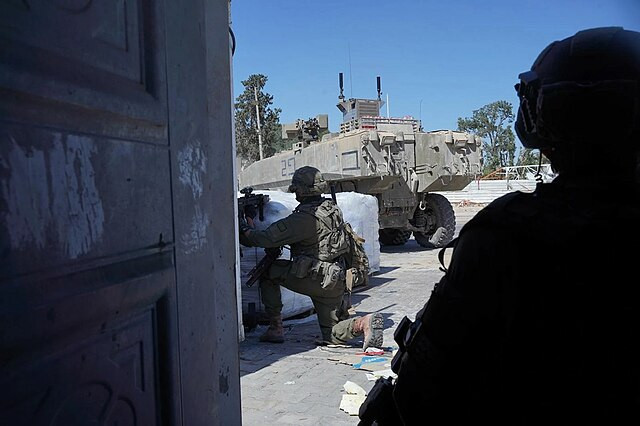Israeli tanks have captured the main road dividing the eastern and western halves of Rafah, effectively encircling the entire eastern side of the city in the southern Gaza Strip. The move has forced tens of thousands of residents to seek shelter outside the city, which had previously been the last refuge for more than a million people who fled other parts of the enclave during the ongoing war.
Residents described almost constant explosions and gunfire east and northeast of Rafah on Friday, with intense fighting between Israeli forces and militants from Hamas and Islamic Jihad. Hamas claimed to have ambushed Israeli tanks near a mosque in the east of the city, indicating that the Israelis had penetrated several kilometers from the east to the outskirts of the built-up area.
Israel maintains that it cannot win the war without assaulting Rafah to root out thousands of Hamas fighters believed to be sheltering there. Hamas, on the other hand, has vowed to fight to defend the city. Aid agencies have warned that the battle puts hundreds of thousands of already displaced civilians in harm's way, with food and fuel supplies in the area critically low.
Abu Hassan, a 50-year-old resident of Tel al-Sultan west of Rafah, told Reuters via a chat app, "It is not safe, all of Rafah isn't safe as tank shells landed everywhere since yesterday. I am trying to leave but I can't afford 2,000 shekels to buy a tent for my family. There is an increased movement of people out of Rafah even from the western areas, though they were not designated as red zones by the occupation."
The Israeli military stated that its forces in eastern Rafah had located several tunnel shafts and that troops, backed by an air strike, fought at close quarters with groups of Hamas fighters, killing several. Israeli jets also hit several sites from which rockets and mortars had been fired towards Israel in recent days, including at the Kerem Shalmon crossing point.
The prospect of an assault on Rafah this week has opened up one of the biggest rifts for generations between Israel and its closest ally, the United States, which has blocked shipments of weapons to Israel for the first time since the war began. Prime Minister Benjamin Netanyahu, however, remains defiant, stating that Israel would "fight with our fingernails" if it must and expressing hope that the country would overcome its disagreements with President Joe Biden.
Ceasefire talks broke up on Thursday with no agreement to halt the fighting and release hostages captured in the Hamas-led Oct. 7 attacks that precipitated the war. The death toll from the seven-month conflict has soared to more than 34,500 Gazans, according to health authorities in the Hamas-controlled enclave, who say thousands more dead are probably buried under rubble.
The humanitarian crisis in Gaza has deepened as a result of the Israeli offensive, with the U.N. warning that northern Gaza is already in a state of "full-blown famine." About 110,000 people have fled Rafah, and the World Food Program has announced that it will run out of food for distribution in southern Gaza by Saturday unless more aid arrives. The lack of fuel is also undermining medical facilities, water supplies, and sewage systems across the territory.
The war began on Oct. 7 when Hamas attacked southern Israel, killing around 1,200 people, mostly civilians, and abducting about 250 others. Israel says militants still hold around 100 hostages and the remains of more than 30 others. The ongoing conflict has caused vast destruction to apartments, hospitals, mosques, and schools across several cities in Gaza.




